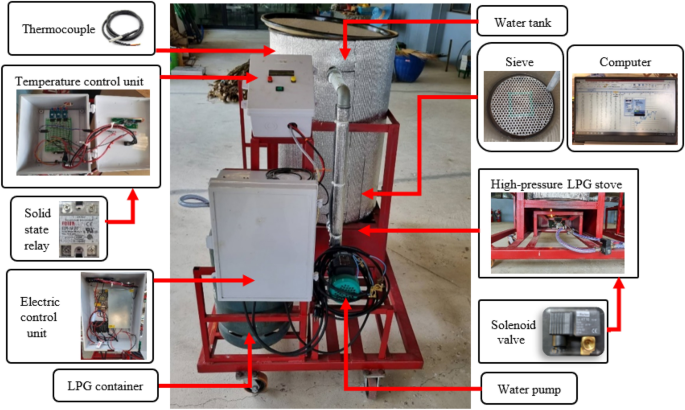Products From Sugarcane: The Secret Behind Greener Construction Materials
Wiki Article
Discover the Ingenious Benefits of Products From Sugarcane for Sustainable Living
Sugarcane has actually become a pivotal source in the quest for sustainable living. Its diverse applications span biodegradable product packaging, renewable resource, and much healthier food alternatives. As industries seek environmentally friendly alternatives, sugarcane's versatility offers promising solutions. The real capacity of sugarcane prolongs beyond its existing usages. Exploring its innovative advantages could disclose brand-new paths toward a more sustainable future. What other possibilities might this remarkable plant hold?
The Increase of Sugarcane as a Sustainable Source
As global understanding of environmental problems grows, sugarcane has arised as a famous lasting resource. This functional plant uses an array of advantages that contribute to environmentally friendly techniques. Sugarcane is a renewable source, efficient in growing in diverse environments while absorbing carbon dioxide, thus reducing greenhouse gas discharges. Its quick growth cycle permits regular harvesting, resulting in a constant supply of raw material.Additionally, sugarcane farming frequently needs less water contrasted to other crops, making it an efficient option in water-scarce regions. The byproducts of sugarcane, such as bagasse and molasses, can be repurposed for various applications, reducing waste and promoting circular economic situation concepts. Developments in farming techniques have actually led to even more lasting farming techniques, additionally boosting sugarcane's ecological account. As consumers significantly seek sustainable options, sugarcane attracts attention as a viable choice for those devoted to minimizing their ecological impact.Naturally Degradable Product Packaging Solutions
Exactly how can naturally degradable packaging services transform the way consumers come close to sustainability? By using sugarcane-based materials, these ingenious remedies use an engaging option to standard plastics. Eco-friendly packaging made from sugarcane decomposes naturally, markedly reducing landfill waste and greenhouse gas exhausts. As consumers become increasingly aware of their ecological effect, the need for lasting packaging continues to rise.These sugarcane-derived items not just serve practical objectives however also straighten with eco-conscious consumer worths. They offer a substantial method for people and organizations to contribute to a round economic climate, advertising resource efficiency and decreasing environmental impacts. In addition, as sectors embrace biodegradable choices, they foster a culture of sustainability that resonates with an expanding market looking for responsible choices.In essence, biodegradable product packaging solutions from sugarcane represent an essential action ahead in lasting practices, equipping consumers to make eco friendly decisions without compromising ease or quality.Renewable Power Generation From Sugarcane
A substantial section of renewable energy generation can be acquired from sugarcane, showcasing its flexibility past traditional farming uses. Sugarcane biomass, consisting of bagasse and leaves, is a potent resource for bioenergy production. This biomass can be exchanged biofuels such as ethanol, which functions as a cleaner choice to nonrenewable fuel sources. Additionally, the combustion of sugarcane results generates heavy steam and power, supplying an energy resource for sugar mills and neighboring communities.The farming of sugarcane additionally adds to carbon sequestration, as the plants soak up co2 throughout their development cycle. By using sugarcane for energy, waste is decreased, and lasting methods are urged. This renewable resource method not only supports energy needs but also promotes rural development, developing jobs in bioenergy markets. On the whole, sugarcane stands apart as a principal in the shift to lasting power options, lining up with global efforts to minimize carbon footprints.
Eco-Friendly Textiles and Fabrics
Green fabrics and materials originated from sugarcane provide an encouraging alternative to conventional products. These eco-friendly choices not only lower environmental effect yet also offer resilience and performance equivalent to conventional textiles. Sustainable manufacturing procedures additionally enhance their charm, making them an essential part of a lasting lifestyle.Eco-friendly Textile Choices
Why is the modification towards naturally degradable material alternatives necessary for sustainable living? The boosting awareness of ecological degradation has motivated a search for options to conventional textiles, which commonly contribute to contamination and waste. Biodegradable textiles, obtained from renewable energies such as sugarcane, supply a promising solution. These materials break down naturally, minimizing landfill build-up and lessening environmental influence. In addition, they can aid lower carbon footprints and reliance on fossil gas. As customers come to be much more eco-conscious, the demand for sustainable fabrics expands, motivating suppliers to spend and innovate in biodegradable options. This modification not only supports sustainable techniques yet also cultivates a round economic situation, leading the way for a more responsible method to fashion and fabric manufacturing.Resilience and Efficiency
When assessing environmentally friendly textiles and textiles, longevity and performance are vital elements. Sugarcane-derived materials show remarkable toughness and strength, making them appropriate for various applications. These fabrics typically exhibit superior moisture-wicking residential properties, which boost comfort in day-to-day wear. In addition, their all-natural fibers add to breathability, ensuring that garments continue to be fresh and wearable even sought after problems. The performance of sugarcane-based textiles reaches their resistance to wear and tear, permitting products to keep their integrity over time. Moreover, these eco-friendly fabrics can be dealt with to enhance UV defense and stain resistance, fulfilling the sensible needs of customers without jeopardizing sustainability. Ultimately, sugarcane textiles provide an unified equilibrium of toughness and performance, interesting ecologically conscious individuals.Lasting Manufacturing Processes
The impressive toughness and efficiency of sugarcane-derived fabrics are complemented by sustainable production processes that prioritize ecological duty. These procedures make use of renewable resources, lessening dependence on fossil gas and reducing carbon footprints. By utilizing the spin-offs of sugarcane farming, manufacturers can produce green textiles while promoting waste reduction. Advanced techniques, such as water-efficient dyeing and eco-friendly treatments, better boost the sustainability of these fabrics. In addition, using non-toxic chemicals assurances that the manufacturing procedure does not hurt ecological communities or human wellness. This dedication to sustainability not only interest ecologically aware consumers yet also sustains neighborhood economic situations by promoting sustainable agricultural practices. In general, sugarcane-derived textiles stand for a significant step towards a greener future in the style market.
Sugarcane-Based Biofuels and Their Effect

Sugarcane-based biofuels have actually become a significant alternate energy resource, offering a renewable remedy to the world's expanding energy needs. These biofuels, obtained from the fermentation of sugarcane juice or molasses, present a more lasting choice compared to fossil fuels. Their manufacturing process produces lower greenhouse gas emissions, adding to climate adjustment mitigation efforts.Additionally, sugarcane biofuels can improve power safety and security by expanding energy resources and lowering dependence on imported oil. The cultivation of sugarcane additionally promotes country growth, creating jobs and boosting regional economies.However, worries pertaining to land usage and food competition persist, as raised biofuel manufacturing might impact food supply chains. Lasting farming methods are necessary to balancing these competing rate of interests and making certain that biofuel manufacturing does not undermine food protection. Generally, sugarcane-based biofuels stand for a promising opportunity for a greener power future, gave that their this hyperlink ecological and social ramifications are thoroughly taken care of.
Much Healthier Alternatives: Sugarcane in Food Products
While many consumers seek healthier options in their diet plans, sugarcane items use a nourishing choice to improved sugars and sweetening agents. Stemmed from the natural removal of sugarcane juice, these products retain vital nutrients, including minerals and vitamins, that are usually shed in processed sugars. Sugarcane has antioxidants and nutritional fiber, adding to overall health and wellness and wellness.Many health-conscious individuals are turning to sugarcane syrup and jaggery, which give a reduced glycemic index compared to traditional sugars, making them appropriate for those managing blood sugar degrees. In addition, sugarcane-derived sweeteners can enhance the taste of numerous meals without the negative results linked with fabricated additives.This change towards natural sweetening representatives not only promotes better dietary choices but likewise straightens with lasting living techniques, as sugarcane is a sustainable resource. Sugarcane items are arising as desirable alternatives in the domain of food items.The Future of Sugarcane in Sustainable Developments
The future of sugarcane is poised to incorporate ingenious applications that extend past conventional usages. Its potential as a source for biodegradable product packaging services and renewable resource sources highlights its duty in lasting practices. Exploring these innovations could substantially impact ecological conservation and source administration.Eco-friendly Packaging Solutions
A raising variety of companies are transforming to naturally degradable packaging options stemmed from sugarcane as a promising choice to traditional plastics. These ingenious materials, usually made from sugarcane fibers and bioplastics, decompose normally, decreasing the long-lasting ecological impact related to standard plastic waste. By utilizing renewable energies, sugarcane-based product packaging adds to an extra sustainable production cycle, lining up with international initiatives to fight contamination and climate change. Furthermore, these services frequently preserve the longevity and performance required for different applications, from food containers to shipping products. As customer demand for green choices expands, businesses adopting sugarcane packaging not only improve their brand photo however likewise play a crucial role in cultivating a circular economic situation, leading the way for a greener future.Renewable Power Sources
Naturally degradable packaging options are simply one facet of the more comprehensive possibility of sugarcane in advertising sustainability. One more substantial application depends on eco-friendly energy resources. Sugarcane is a functional crop that can be used my sources to create biofuels, such as ethanol, which functions as a cleaner alternative to fossil gas. The fermentation procedure of sugarcane juice returns ethanol that can power automobiles and produce electrical energy. Furthermore, the byproducts of sugarcane handling, like bagasse, can be used to produce biomass power, using a sustainable and efficient method to harness power. This double role as both a resource of biofuel and biomass underscores sugarcane's potential in minimizing carbon exhausts and sustaining a shift to an extra lasting energy landscape in the future.Frequently Asked Questions
Exactly How Is Sugarcane Gathered Sustainably?
Sugarcane harvesting can be sustainable with methods like hand-operated cutting, which minimizes soil disturbance, and making use of machinery that lowers fuel consumption (Products From Sugarcane). Plant turning and integrated parasite administration even more enhance ecological health and advertise long-term dirt fertilityWhat Are the Environmental Influences of Sugarcane Farming?

Can Sugarcane Products Be Recycled?
The question of whether sugarcane products can be recycled discloses a positive outlook. Several sugarcane-derived products, such as bioplastics and product packaging, are designed for recyclability, contributing to a more sustainable waste management approach within environmental considerations.Are There Any Type Of Disadvantages to Using Sugarcane-Based Products?
The drawbacks of using sugarcane-based products include prospective land usage competitors with food crops, obstacles in large-scale production, and concerns concerning the environmental effect of monoculture farming practices, which can diminish biodiversity and soil wellness.Just How Does Sugarcane Growing Affect Citizen Communities?
Sugarcane farming impacts local neighborhoods by supplying employment possibility and improving regional economic climates. It can likewise lead to land disputes and ecological issues, impacting agricultural techniques and neighborhood health, demanding a well balanced approach to growth. Innovations in agricultural practices have led to even more lasting farming methods, further boosting sugarcane's ecological profile. Additionally, the burning of sugarcane by-products creates heavy steam and power, providing an energy source for sugar mills and nearby communities.The cultivation of sugarcane also contributes to carbon sequestration, as the plants soak up carbon dioxide throughout their development cycle. By utilizing sugarcane for power, waste is minimized, and lasting practices are urged - Products From Sugarcane. Sugarcane consists of antioxidants and dietary fiber, adding to overall health and wellness and wellness.Many health-conscious individuals are transforming to sugarcane syrup and jaggery, which offer a reduced glycemic index contrasted to traditional sugars, making them appropriate for those taking care of blood sugar levels. In addition, the byproducts of sugarcane handling, like bagasse, can be made use of to produce biomass power, providing a sustainable and reliable approach to read the full info here harness powerReport this wiki page